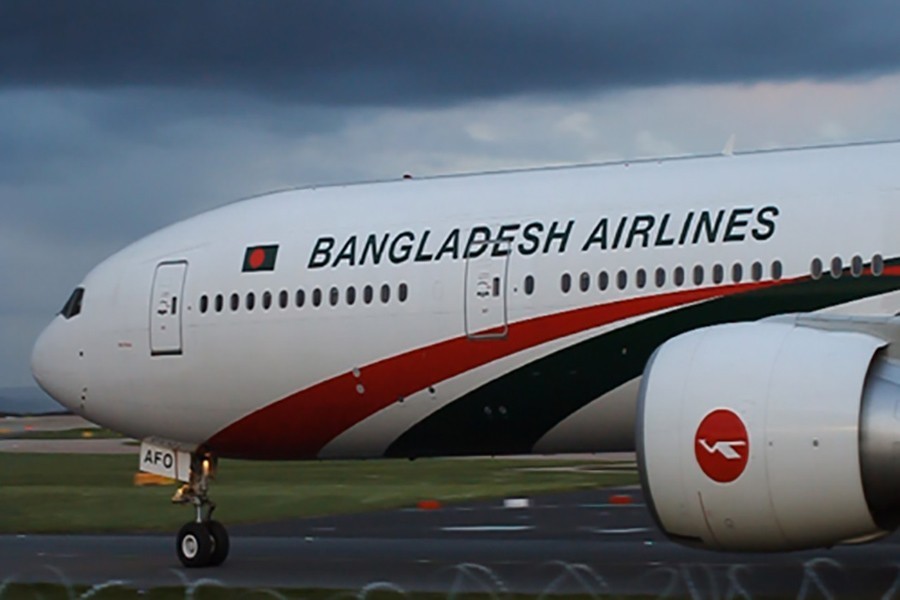
Published :
Updated :

The Civil Aviation Authority of Bangladesh, or CAAB, has halted air travel to and from Nepal, adding it to the list of countries that pose a ‘high risk’ of coronavirus infections.
The CAAB said the suspension would take effect on Monday and would continue indefinitely.
The Bangladesh government suspended domestic flights from April 5 to Apr 14 in an effort to curb a second wave of coronavirus cases.
Bangladesh imposed a ‘stricter lockdown’ on April 14, announcing a tougher series of health rules, as the caseload continued to rise.
Domestic flight services resumed in a limited capacity on April 21, while international flights restarted, with strict restrictions, on May 1.
Restrictions included limits on travel from 38 countries. Twelve countries -- Argentina, Brazil, Colombia, Costa Rica, Cyprus, Georgia, India, Iran, Mongolia, Oman, South Africa and Tunisia -- were identified as high-risk nations. The government slapped a ban on incoming passengers from these countries, bdnews24.com reports.
Nepal has now been added to this list, raising the number of countries in this group to 13.
Separately, incoming passengers from 26 countries were required to complete a mandatory 14-day institutional quarantine. These countries are Austria, Azerbaijan, Bahrain, Belgium, Chile, Croatia, Estonia, France, Germany, Greece, Hungary, Iraq, Kuwait, Italy, Latvia, Lithuania, the Netherlands, Paraguay, Peru, Qatar, Slovenia, Spain, Sweden, Switzerland, Turkey and Uruguay.
A special exception was made for incoming passengers originating from Bahrain, Kuwait and Qatar, who are required to complete a three-day mandatory institutional quarantine at a government-nominated facility or hotel and can be released for 11 days of home quarantine if they test negative for Covid.
Incoming and outgoing passengers from all other countries are allowed to travel to Dhaka and will have to complete a 14-day strict home quarantine upon arrival. However, if Covid-19 symptoms are detected they will be sent to a government-authorised hospital for a further checkup, depending on the intensity of the symptoms or into isolation at a government-nominated facility or hotel at the passengers’ expense.
All incoming and outgoing passengers, except children below the age of 10, are required to have a PCR-based Covid-19 negative certificate, with the test being done within 72 hours of the flight’s departure time.
Outgoing passengers will also have to follow the latest restrictions imposed by their countries of destination and transit.


 For all latest news, follow The Financial Express Google News channel.
For all latest news, follow The Financial Express Google News channel.